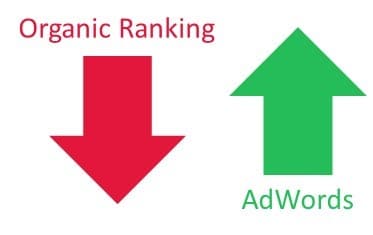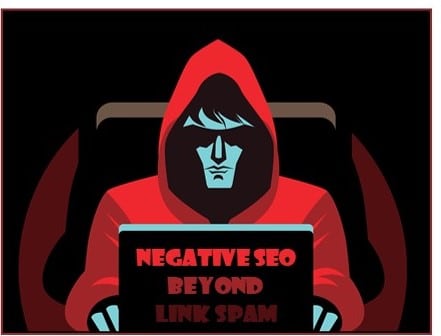Is Negative SEO Real? Does Google Care?
There was a time when negative SEO was a rare event, sadly that is no longer the case. Over the last year or so we have encountered obvious negative SEO tactics with increasing frequency and aggression. We have also started to see attacks being made on websites associated with less competitive niche markets. So much so that at this point, we would have to say that not only is negative SEO real, it is mainstream.
In a similar way to which telephone spam calls have become pervasive, so has negative SEO.
What Is Negative SEO?
Negative SEO is any tactic used to damage the organic rank of a web property. Typically, it is used mostly in relation to organic ranking in Google search, however, it is not limited to that environment. We see it used as part of a broader mixed strategy of positive SEO tactics deployed to rank a company’s website, whilst at the same time, implementing negative SEO tactics designed to de-rank a competitors’ website.
Dick Dastardly and The Great Race
Growing up, a couple of my favorite movies and TV shows were Wacky Races and The Great Race. In both cases, they were shows which centered around continuous, almost never-ending races. While the hero of the shows was always whiter than white, played by the rules, and always did the right thing, the real fun was always with the bad guy. The bad guy was always up to some dastardly trick that would do some damage to the other competitors. Causing their engines to fall out of their cars, pumping smoke or oil on the road, their wheels to fall off, or similar. In the shows, invariably the bad guy would eventually come unstuck as their dirty deeds backfire on them.
People that practice negative SEO tactics are the “Dick Dastardly” equivalents of the SEO world.
Their focus on doing negative things is ultimately at the cost of focusing one hundred percent on doing positive things.
Do We Provide Negative SEO Services?
We believe in being good citizens and do not help people implement negative SEO attacks on their competitors. We do, however, provide services to help people mitigate SEO attacks. Click here “suspected SEO attack” or call us directly at +1 801 349 8226 to get help.
Negative SEO Tactics
Link Spam Attacks
Since Google started penalizing websites (see Google’s Penguin algorithm update) that tried to improve their ranking by purchasing lots of links, negative SEO has become extremely easy and inexpensive. Where a company would have purchased links to improve their ranking, now those links tend to have a negative impact, they continue to purchase links but instead point them at their competitors’ websites.
Laughing All the Way to The Bank
Ironically, while it was Google’s intent to shut down the companies that generated thousands of websites purely for the purpose of selling links (link spam) instead, they created a new market for those companies. Companies that sell links now have two markets, one where they continue to sell “high quality” links for ranking websites. And one where they sell “low quality” links for de-ranking competitors’ websites. Both tactics continue to work, albeit not so dramatically as before Penguin.
Is Google Likely to Do Anything About it?
On this we can only speculate, however, if you follow the money, you will probably be able to get a sense of the likelihood. Google seems to be mostly in denial that negative SEO exists to any real degree. They also, and somewhat contradictively, provide a ‘manual process’ for disavowing link spam going to your website.
It’s important to point out that a negative SEO attack can consist of thousands of new links pointing to your website every single month, forever. The budget needed to pull this off is relatively small. The process of a negative SEO link spam attack is usually low cost, automated and it is easy to find lots of companies that will provide the service. Given that, the Google ‘manual process’ is going to keep you pretty busy on an ongoing basis.
Following the Money
If you discover that your website drops in ranking due to a negative SEO attack, who wins? Well, the company doing the dastardly deed will of course but so will Google. Google makes its money (billions of dollars) mostly through AdWords. It does not make any money if you rank organically. If your organic ranking tanks, your only sure-fire way of staying on page one is to run AdWords campaigns, Google wins. So, ask yourself this, what’s the likelihood of Google putting significant resources into solving a problem that ultimately puts a lot of dollars in their pocket? Not much we think, this is just our opinion of course…
Negative SEO – Beyond Link Spam
When it comes to negative SEO, at 200,000 links for $10, link spam is just the low-cost commodity tactic. There are lots more devious and insidious tactics. Here are a few, but by no means a comprehensive list of examples.
Scraping Content
Sections or whole pages of content from your website are copied and then posted on one or more places on the web. This process essentially removes the uniqueness of your content potentially damaging the authority of your website. Just because you were first to publish specific content does not guarantee Google will always rank it the highest. If that process is then supplemented with an automated social media or link-building campaign the copied content can even outrank your original content.
Fake Positive as Well as Negative Reviews
The obvious tactic here is to generate a range of negative reviews for your competitor. The opposite to this is in understanding that a great way to damage your own website’s authority, as well as your business’s social standing, is to generate lots of fake positive reviews. With this counterintuitive tactic, instead of generating fake negative reviews, the villain generates a volume of fake positive reviews. Even though the reviews may be positive, if there are a lot of reviews that look fake they will ultimately have a negative effect.
Canonical Tag Attack
The “head” and canonical tag section of the targeted web page is copied into the head section of an alternative spam-like webpage. This new canonical tag tells Google that the spam-like page is actually the targeted site’s real webpage. All the negative spam signals are then algorithmically applied to the targeted site. As the result, the site drops in ranking.
Trademark Attacks
A company trademarks terms you use and then sends you intimidating ‘cease and desist’ letters. A lot of business owners will remove the phrases from their website in order to avoid threatened litigation costs. In removing those phrases, the website being targeted no longer ranks for them.
DDoS (Distributed Denial-of-Service) Attacks
Using some form of automated software spread throughout the web, a particular site is targeted with a huge amount of various forms of intrusive traffic. This can come in a range of forms including repeated login attempts and or simply repeated, automated, site crawling. The net result of this artificial traffic is that the targeted site becomes much slower to load and sometimes becomes completely unavailable. In one such attack, one of our client’s websites received in excess of 30,000 distributed login attempts per hour.
Directly Hacking Your Website
Once access is gained to a website there are endless ways to de-rank it. This happens more often than you would think.
Negative SEO Definitive List?
Bear in mind that the negative SEO tactics mentioned above are by no means a comprehensive list. Just like professional burglars will evolve their techniques for gaining entry into a property, negative SEO specialists constantly come up with new tactics.
Negative SEO On the Rise
Sadly, where at one time (Pre-Penguin) we were seeing only very rare negative SEO attacks, we now see this activity on a frequent basis.
Need Help with a suspected SEO attack?
The good news is that there is almost always a method to recover from a negative SEO attack. We know, we have had to deal with a lot of them. Click here “suspected SEO attack” or call us directly at +1 801 349 8226.





